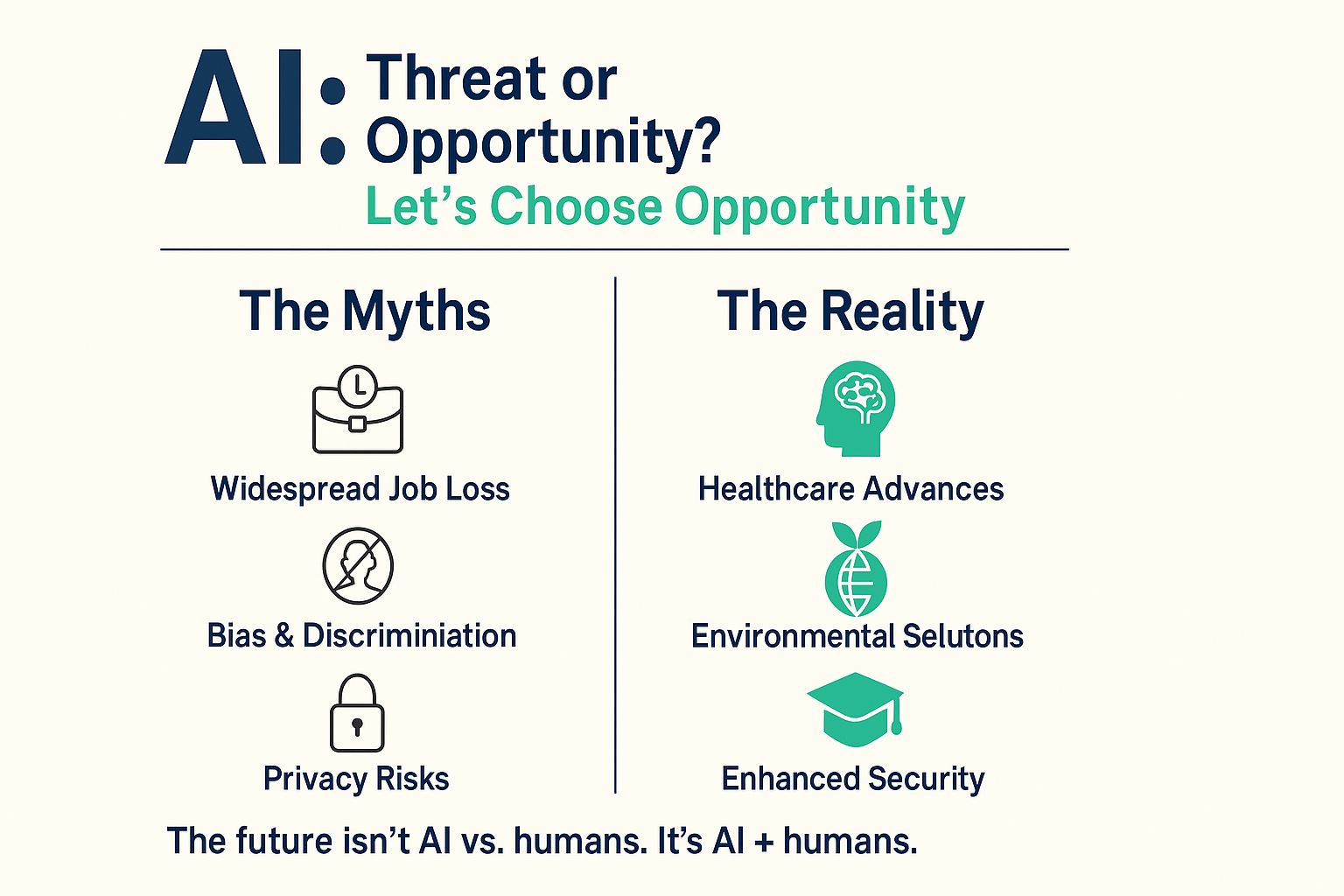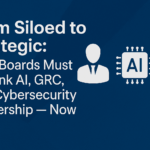This morning, while going through some group messages, I came across a series of posts expressing deep concern over AI—highlighting only the negative implications of its rise. While I respect every perspective, the one-sided portrayal compelled me to share a more holistic and hopeful view of what AI is and what it can truly offer.
We’re living in an era where Artificial Intelligence is no longer a futuristic dream—it’s a present-day reality reshaping industries, amplifying human potential, and addressing some of the world’s most pressing challenges. Focusing solely on its risks without acknowledging its revolutionary promise is not only unbalanced, but also counterproductive.
Let’s take a closer look at how AI is making a meaningful difference across society, economy, healthcare, environment, and education—and how it holds the potential to do even more.
- Healthcare Transformation: Saving Lives at Scale
AI is enabling earlier, more accurate diagnoses and personalized treatments.
- Medical Imaging: AI-powered tools can detect cancers (like breast and lung) earlier than traditional radiologists, improving survival rates.
- Predictive Analytics: Hospitals use AI to predict patient deterioration and allocate resources efficiently saving lives in ICUs.
- Drug Discovery: What once took years, now takes months. AI models have helped identify novel compounds for diseases like Alzheimer’s and even COVID-19.
- Telemedicine & Chatbots: AI supports rural and underserved communities with real-time health advice and mental health counselling.
- Education & Learning: Making Knowledge Truly Borderless
AI is democratizing education by personalizing learning journeys for everyone.
- Personalized Tutoring: Adaptive platforms like Khan Academy, powered by AI, tailor lessons to student pace and learning style.
- Language Translation: AI enables cross-lingual communication and learning, helping students access global knowledge in their native tongue.
- Special Needs Support: AI tools help students with visual, auditory, or cognitive disabilities learn independently and effectively.
- Environmental Sustainability: A Smart Planet
AI isn’t just consuming energy—it’s also helping protect the planet in numerous ways.
- Climate Modelling: AI helps scientists model climate scenarios faster and more accurately, guiding policies for a sustainable future.
- Wildlife Protection: AI-powered drones monitor poaching and track endangered species in real-time.
- Precision Agriculture: Farmers use AI to optimize irrigation, predict crop yields, and reduce pesticide use—enhancing food security while protecting ecosystems.
- Economic Growth & Efficiency
AI is fuelling innovation and unlocking massive productivity gains.
- Supply Chain Optimization: Companies like Amazon and Maersk use AI to streamline global logistics, reduce waste, and improve customer satisfaction.
- Fraud Detection: Banks and fintech platforms rely on AI to detect and stop fraudulent transactions in milliseconds.
- Job Creation: While it’s true that AI may displace certain roles, it’s also creating entirely new industries—from AI ethics to robotics maintenance to prompt engineering.
- Cybersecurity & Threat Intelligence
AI is a force multiplier in the ever-evolving battle against cyber threats.
- Anomaly Detection: AI models flag suspicious behaviours far faster than traditional systems.
- Threat Hunting: Automated analysis of threat patterns allows organizations to proactively mitigate risks before they become breaches.
- Security for Critical Infrastructure: AI protects power grids, water treatment facilities, and industrial networks against modern-day cyberattacks.
- Social Good & Humanitarian Aid
AI is already being used to uplift communities and protect human dignity.
- Crisis Response: During disasters, AI helps map affected regions via satellite imagery and direct aid to the most impacted.
- Human Trafficking Detection: Organizations use AI to uncover trafficking networks and rescue victims.
- Disability Inclusion: Real-time transcription and speech-to-text technology empower the deaf and hard-of-hearing community.
The Real Question Isn’t “AI: Good or Bad?” — It’s “How Do We Use It Wisely?”
Just like fire, electricity, or the internet, AI is a tool. And like any powerful tool, it must be used with intention, wisdom, and ethical guardrails. That’s why AI governance, data privacy, environmental considerations, and human oversight are crucial. But fear should not dominate the narrative—balanced optimism should.
Instead of focusing solely on worst-case scenarios, let’s lead by developing, using, and promoting AI responsibly—for the betterment of humanity.
Let’s empower our youth to innovate, our institutions to regulate wisely, and our industries to build AI systems that uplift the world.
In Closing
The real future of AI lies in how we shape it—not in resisting it out of fear, nor in embracing it blindly. Let’s be the generation that steered AI not into dystopia, but into a golden age of equity, progress, and hope.
The future isn’t AI vs. humans. The future is AI with humans—together, building a better world.
#ArtificialIntelligence #AIForGood #TechForImpact #FutureOfWork #DigitalTransformation #EthicalAI #HopeInTech


